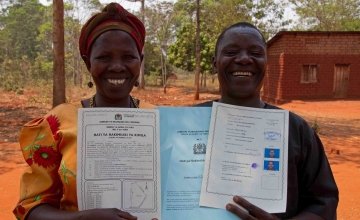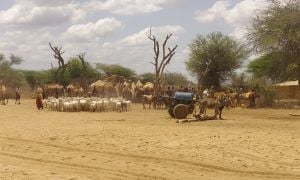
Read our 2023 annual report

Knowledge Hub
Farming Together in Burundi, Ethiopia and Tanzania: Final evaluation 2013
The "Maximizing rural communities’ livelihood options through engagement between non-state actors, government and the private sector" (also known as Farming Together) programme was implemented in Burundi, Ethiopia and Tanzania from 2010 until 2013.

The evaluation found that "We can conclude that the project has made a substantial contribution in all three countries to eradicating extreme poverty and hunger and to improving food security, the overall objective."
Furthermore, the evaluation also concluded:
- The project has made a substantial contribution towards strengthening district government structures in all three countries (especially the land offices in Tanzania and the agriculture and planning departments and disaster risk reduction focal points in all three countries).
- The project has contributed to diversified livelihoods in all three countries but there could have been more emphasis on processing, especially in Ethiopia and Burundi and to non-agriculturally based livelihoods in all three countries. Market links with private sector were not strong in any of the countries.
- CSO partners have increased their involvement in government planning though to the greatest extent in Tanzania. Involvement of the CBOs in Iringa and Kilolo (Tanzania) in district planning has been minimal though they are involved at a local level. There were no examples of the private sector becoming involved in government planning
This document covers humanitarian aid activities implemented with the financial assistance of the European Union. The views expressed herein should not be taken, in any way, to reflect the official opinion of the European Union, and the European Commission is not responsible for any use that may be made of the information it contains.




